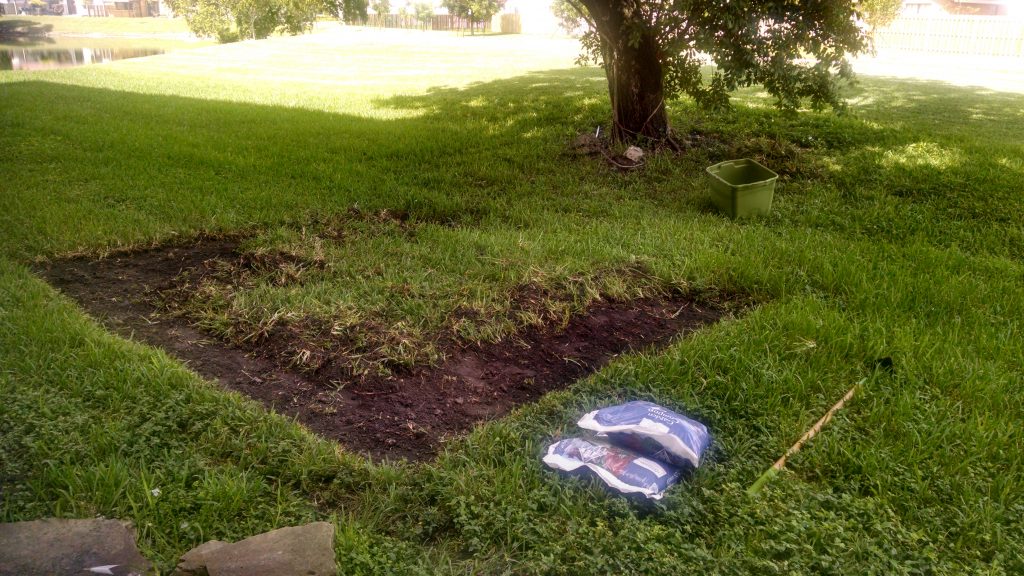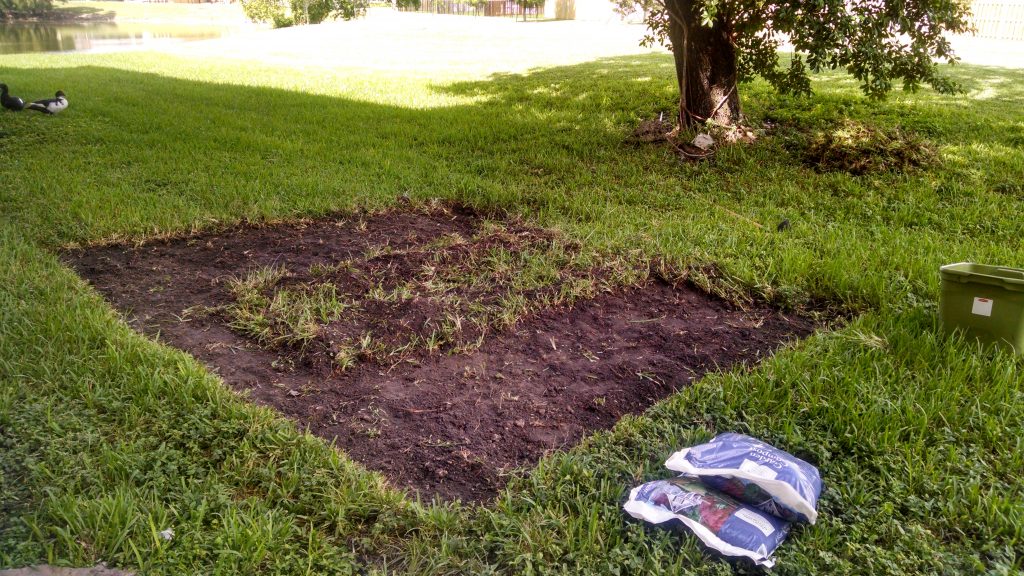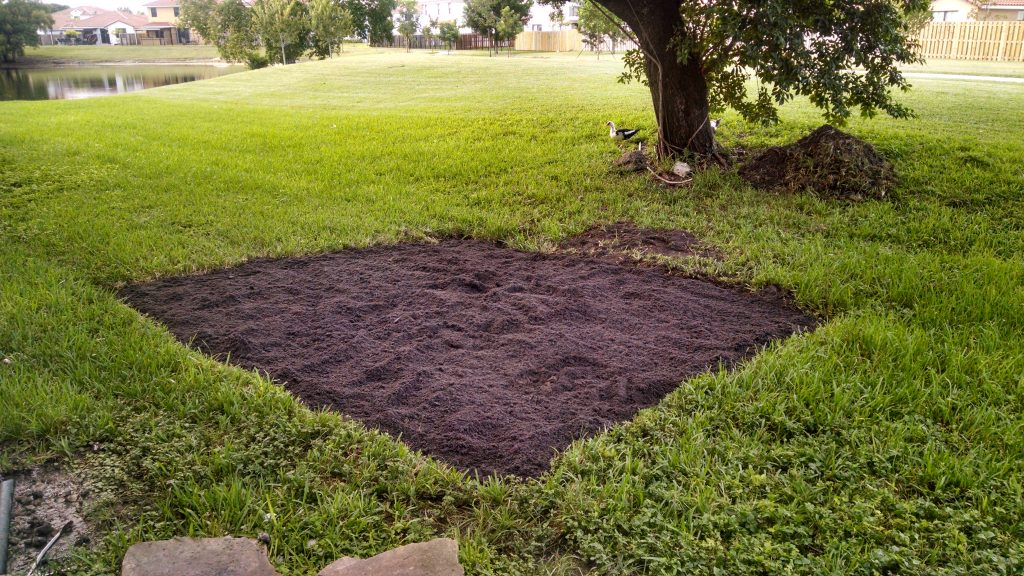Click the “watch on Vimeo” button. It’s an hour and forty minutes long, but worth it.
A Moment of Honesty From Obama
“That’s not a choice we want Americans to make.”
It’s seems straight from Chapter 3 of Brave New World.
(If you haven’t read it lately, you should.)
Understand that strong, coherent families are the greatest threat to a totalitarian government.
A well-ordered, well-disciplined family tells more in behalf of Christianity than all the sermons that can be preached.
It shows that God’s model works.
Thing is, even Obama knows that God’s model works.
That’s why he’s so intent on attacking it.
A strong family has little need for the government.
A weak family has great need for the government.
Obama wants weak or non-existent families.
So do most ‘conservative” politicians.
So do most voters.
This is why they pushed women’s suffrage.
This is why they pushed no-fault divorce.
This is why they have pushed for every form of sexual deviancy, from promiscuity to homosexuality.
This is why they constantly cry about a “wage gap.”
Because they don’t want you to follow God’s model.
Because they’d rather you stayed miserable and seeking satiation.
Because they value “the economy” more than your soul.
But speak thou the things which become sound doctrine: that the aged men be sober, grave, temperate, sound in faith, in charity, in patience. The aged women likewise, that they be in behaviour as becometh holiness, not false accusers, not given to much wine, teachers of good things; that they may teach the young women to be sober, to love their husbands, to love their children, to be discreet, chaste, keepers at home, good, obedient to their own husbands, that the word of God be not blasphemed. Young men likewise exhort to be sober minded. —Titus 2:1-6 (KVJ)
Frugal Friday: Cider
Today’s Frugal Friday post is a quick, easy, and cheap way to make your own cider.
Here’s what you will need to get started:
- 1 gallon of preservative-free apple juice. Check the ingredients. If there is anything in it other than apple juice and citric or absorbic acid, find a different brand.
- 1 gallon of spring (not purified) water. (Not necessary if the apple juice comes in a 1-gallon jug)
- 1 bag of organic granny smith apples (Organic is necessary to ensure that the natural apple yeast is alive)
- 1 balloon
- 1 pin or needle
When you’ve got everything together, dump out the water. Remove the apples from the bag and peel them. Do not wash them beforehand. Place all the peelings in the empty gallon jug. Next, fill the jug with juice to about 1″ from the mouth. Use the needle or pin to poke a hole at the top of the balloon, and then place the balloon over the mouth of the jug. Set the jug on the counter where it will be out of the way.
In 1-2 days you will notice that the balloon is standing upright and there are bubbles rising in your juice. From this point, count off one week. If you want to vary the alcohol content of your cider, you can increase or decrease this time on your second batch. Your first batch, you are going to brew for one week, because I said so.
When the week is up, remove the balloon and very carefully pour your cider into a different container. There will be a large amount of yeast sitting at the bottom, and you want to leave this as undisturbed as possible. Your cider is now ready to drink, but ideally ought to be chilled in the fridge first. The last pint or so of cider, containing all the yeast, you will pour off into a third container. To the yeast dregs add about a teaspoon of sugar, and then place it in the fridge as well.
When you are ready to make your second batch, remove the yeast dregs, shake it up to distribute the yeast, and place about 1/2 of a cup of the dregs in your gallon jug. Add juice to about 1″ from the mouth, and place a punctured balloon on as before. You do not need the peelings the second time because the point of the peelings is to provide yeast, and you now have a supply of yeast from the dregs. Pour about 1/2 of a cup of the fresh juice into the dregs, and place it back in the fridge for next time. Again, wait for the balloon to stand up, and then count off a week and your cider will be ready.
Numbers 30
Moses spoke to the heads of the tribes of the people of Israel, saying, “This is what the Lord has commanded. If a man vows a vow to the Lord, or swears an oath to bind himself by a pledge, he shall not break his word. He shall do according to all that proceeds out of his mouth. “If a woman vows a vow to the Lord and binds herself by a pledge, while within her father’s house in her youth, and her father hears of her vow and of her pledge by which she has bound herself and says nothing to her, then all her vows shall stand, and every pledge by which she has bound herself shall stand. But if her father opposes her on the day that he hears of it, no vow of hers, no pledge by which she has bound herself shall stand. And the Lord will forgive her, because her father opposed her.
“If she marries a husband, while under her vows or any thoughtless utterance of her lips by which she has bound herself, and her husband hears of it and says nothing to her on the day that he hears, then her vows shall stand, and her pledges by which she has bound herself shall stand. But if, on the day that her husband comes to hear of it, he opposes her, then he makes void her vow that was on her, and the thoughtless utterance of her lips by which she bound herself. And the Lord will forgive her. (But any vow of a widow or of a divorced woman, anything by which she has bound herself, shall stand against her.) And if she vowed in her husband’s house or bound herself by a pledge with an oath, and her husband heard of it and said nothing to her and did not oppose her, then all her vows shall stand, and every pledge by which she bound herself shall stand. But if her husband makes them null and void on the day that he hears them, then whatever proceeds out of her lips concerning her vows or concerning her pledge of herself shall not stand. Her husband has made them void, and the Lord will forgive her. Any vow and any binding oath to afflict herself, her husband may establish, or her husband may make void. But if her husband says nothing to her from day to day, then he establishes all her vows or all her pledges that are upon her. He has established them, because he said nothing to her on the day that he heard of them. But if he makes them null and void after he has heard of them, then he shall bear her iniquity.”
These are the statutes that the Lord commanded Moses about a man and his wife and about a father and his daughter while she is in her youth within her father’s house.
(ESV)
Alone?
In a comment on his recent article about the NFL, Cane Caldo wrote
I am convinced that the solution to the mismatch of emotions with experience is to change how we perceive the experience. In that light, my feelings of defeat are shown to be false…which matches with what the Bible tells me both about our victory in Christ and about the deceitfulness of my heart. Now, others’ confusion at my peculiar view of sports, art, and media is the source of my sense of victory. And it correlates with the Truth.
Like Cane, I am convinced. However, this is an area where I sometimes struggle to put the force of action behind my conviction. Too often I find myself listening to my deceitful heart and saying with Elijah “I alone am left.” In such times, I refer to Paul’s comments on Elijah’s struggle.
God has not rejected his people whom he foreknew. Do you not know what the Scripture says of Elijah, how he appeals to God against Israel?“Lord, they have killed your prophets, they have demolished your altars, and I alone am left, and they seek my life.” But what is God’s reply to him? “I have kept for myself seven thousand men who have not bowed the knee to Baal.” So too at the present time there is a remnant, chosen by grace. But if it is by grace, it is no longer on the basis of works; otherwise grace would no longer be grace. —Romans 11:2-6 (ESV)
I have had many real life conversations lately where people have been drawn to me, ask me questions, because my Biblical perspective is so different than anything they have run into, even in the church. That’s success, and I know it. But it doesn’t always feel like success, and sometimes it takes real effort to beat down those feelings with the Truth of Scripture.
What feelings?
The feelings of aloneness. “I’m the only one left, boo-hoo-hoo.” Thank God for the record of Elijah struggling with the same thing, because it feels like a pretty childish sentiment to admit to.
Childish as it may seem, it has been a struggle for better men than I. And I know it is not just me. Are you feeling abandoned today? Like you are the only one left seeking to follow in the way of righteousness?
That feeling is a lie.
Elijah felt that way right before God led Him to Elisha, the disciple that was to not only continue his ministry but receive a double portion of his spirit. Elijah’s sense of abandonment was so great that he asked God to let him die. The Devil wanted to keep him from ever meeting and discipling Elisha.
Maybe the Devil is trying to limit your effectiveness through feelings of aloneness. If so, resist him, and he will flee.
Christ promised that He would be with us until the end of the world, and that’s the best company a man could ask for.
Garden Goes In
As much as I miss my northern home, there are certain benefits to my current location. One of those benefits is a year-round growing season. In an attempt to reduce my monthly food bill and free up more money for my retirement plan, I attacked the back lawn of my apartment building today. The ground is very hard and rocky, I will probably need to double the amount of compost I laid down, but it is a start. It’s been a little while since I swung a hoe–I’d gotten too far away from God’s word on food procurement. Tomatoes, carrots, beets, beans, and watermelon are all started and will be transferred to the garden upon sprouting.




Dried-Out Husks
I came across this old story in an out-of-print book on the evils of alcohol.
Are you still with me? I hope so.
Leaving aside many things, I want to draw two points from this.
Firstly, there is nothing new under the sun. At the top of page 155, Tom’s decision to visit the tavern is held up as a moral failing because his wife had other plans for the money. We are not told what these other plans were, but apparently they were more important than clothing his children, as that need was mentioned almost as an afterthought. “It was a moral failing for Tom to go to the tavern, because his wife wanted to use the money for something else (and also because his kids needed clothes, but that’s far less important…).”
Secondly, as I read the story, I could not but help feel that despite the author’s intent, it is not a story about drink at all. Rather, it is allegory of what I see all around me–a social condition that leaves far more walking husks of humanity than liquor. Every day I interact with young ladies females who determinedly give away bits of the kernel of themselves to whomever will take a bite. It is as if their overarching goal in life is to ensure that should they ever marry, naught but a husk remain for their future husbands. While Tom in the story realized that his drunkenness was robbing his wife, children, and himself, do those he is an allegory of recognize the robbery they are committing?
I fear not.
Yet it is not just women that I see destroying the kernel to leave only a shriveled husk. I see young men males frantically distributing the kernel of their masculinity wholesale to whatever female will give them in return an illicit morsel of her kernel. It’s as if their overarching goal is to reduce their masculinity to a paper-thin husk tossed by the wind and trampled underfoot. Do these recognize the robbery they are committing?
Again, I fear they do not.
There are many dried-out husks of humanity walking around out there. Husks of men and husks of women, frantically seeking fulfillment by making themselves emptier.
Don’t be a husk.
Let him not trust in emptiness, deceiving himself; For emptiness will be his reward. Job 15:31 (NASB)
A Photo of My Writing Desk

Makin’ it Big, The Call that Cannot be Assuaged, and Living Small
What does it mean to “make it” or to “make it big?”
Is it driving a Rolls-Royce car?
Is it getting your face on the cover of Rolling Stone magazine?
Is it putting up a 405lb bench press?
Is it retiring early?
Is it becoming your own boss?
Not for the Christian. Paul writes:
But whatever gain I had, I counted as loss for the sake of Christ. Indeed, I count everything as loss because of the surpassing worth of knowing Christ Jesus my Lord. For his sake I have suffered the loss of all things and count them as rubbish*, in order that I may gain Christ and be found in him, not having a righteousness of my own that comes from the law, but that which comes through faith in Christ, the righteousness from God that depends on faith— that I may know him and the power of his resurrection, and may share his sufferings, becoming like him in his death, that by any means possible I may attain the resurrection from the dead. –Philipians 3:7-11 (ESV)
Now, if we were to stop here, it would seem that Paul is saying that attaining the resurrection from the dead is “making it big.” This is a common misconception. But the resurrection is not the prize, it is simply a step to be traversed in the continual pursuit of the prize.
Not that I have already obtained this or am already perfect, but I press on to make it my own, because Christ Jesus has made me his own. Brothers, I do not consider that I have made it my own. But one thing I do: forgetting what lies behind and straining forward to what lies ahead, I press on toward the goal for the prize of the upward call of God in Christ Jesus. Let those of us who are mature think this way, and if in anything you think otherwise, God will reveal that also to you. Only let us hold true to what we have attained. –Philipians 3:12-16 (ESV)
The prize is the call. Thus, the prize can be had right now–but cannot be grasped. It is ours as long as we pursue it, and yet is lost as soon as we turn from its pursuit. In this way, the call of God can be compared to the lesser calls of the wild, the sea, the mountains, and The Northland. I have felt all these calls. None of them disappear when you chase them. The call of the sea only gets stronger the more nights you spend on deck looking out over the empty ocean and the sky full of far more stars than can be seen even in the wilds of Montana. The call of the mountains get stronger the more nights you spend in a lean-to listening to the wolves howl and the streams murmur. Like these lesser calls, the call of God gets only stronger as you seek to assuage it–and yet, like the lesser calls, the call itself brings comfort despite not being diminished.
There is another way in which the call of God can be compared to these lesser calls. In the words of Oswald Chambers,
The call of God is like the call of the sea— no one hears it except the person who has the nature of the sea in him. —My Utmost for His Highest, entry for 05 Aug
In order to hear the call of God, we must be participators in the divine nature, i.e., we must have the nature of God within us. This can only happen through the quickening of God’s spirit dwelling within us.
To follow any call requires one to be willing to walk away from what he has.
Consider Jack London’s description of the call of the wild:
Deep in the forest a call was sounding, and as often as he heard this call, mysteriously thrilling and luring, he felt compelled to turn his back upon the fire and the beaten earth around it, and to plunge into the forest, and on and on, he knew not where or why; nor did he wonder where or why, the call sounding imperiously, deep in the forest. —The Call of the Wild, Chapter 6
To follow any call is to turn one’s back on something else. Yet, sadly, rock artists understand this better than Christians. Look again at the lyrics to the song at the beginning of the post.
Dylan sings for millions And I just sing for free .. Well I paint my face with glitter Just like Bowie does And I wear the same mascara That Mick Jagger does
–“Everybody’s making it big but me” written by Shel Silverstein and performed by Dr. Hook
Musicians aren’t afraid to look ridiculous in order to follow the call of fame and fortune, but are Christians willing to look ridiculous to follow the call of God? More than that, are Christians willing to even consider making the financial sacrifices that aspiring musicians make? When I was in college, I ran sound for a Christian rock band for a while, and toured across the country. I met a lot of aspiring musicians, and almost all of them had made major sacrifices to follow the call of playing music for a living. Yet the idea in the church seems to be that one can follow the call of God without turning his back on “the fire and the beaten earth around it.”
You can’t.
Now the fire and beaten earth can stand for many things in your life. Whatever they are, they are comfortable, they are inviting, they are familiar, and they are holding you back from following the call of God. And whatever else they are, they probably include material possessions. There may well be other things that are the fire and beaten earth in your life, but more likely then not, to paraphrase Fight Club’s Tyler Durden, the things you own have ended up owning you.
Jesus understood the trap of possessions. That’s why he commanded his flock to get rid of them. It’s why he told the rich young ruler to sell all that he had. Jesus observed that a man would joyfully sell all that he owned to gain ephemeral pelf, yet when the ruler was offered the opportunity to make the same sacrifice for a much more amaranthine guerdon, he went away sorrowful.
Now, I’m sure some intrepid reader will point out that a man has a scriptural responsibility to provide for his household, and that to shirk this responsibility is to deny the faith. The reader is correct in his observation. However, this does not provide a licence for unrestricted accumulation. Your responsibility to provide does not mean that you must have new cars, a large house, cable TV (or even a television). It does not even mean that you have to have a washing machine–certainly the fathers to whom that passage was originally written did not provide their families with such appliances.
I’m not trying to argue that there is anything wrong with owning a few household appliances such as a washing machine. What I am saying is that the imperative to provide does not excuse excess. Consider your life, your belongings–Does Luke 12:32-33 make you uncomfortable? Are material possessions the fire and beaten earth that are keeping you from following the call of God?
To follow any call requires one to turn his back on something.
Live small.
Follow the call.
Make it big.
But Jesus told him, “Anyone who puts a hand to the plow and then looks back is not fit for the Kingdom of God.” —Luke 9:62 (NLT)
*See study here or by clicking above